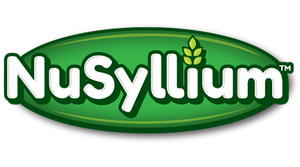Psyllium Fiber Facts

Psyllium fiber comes from the outer coating or “husk” of the Plantago ovata plant’s seeds, not from wheat, making it naturally gluten free. Psyllium is a natural and soluble form of fiber known to promote regularity and act as a laxative.
Psyllium soluble fiber, taken as a dietary supplement, has multiple health benefits supported by existing scientific research. These include helping to support a healthy digestive system, maintaining healthy blood sugar levels, reducing the risk of cardiovascular disease by lowering blood cholesterol levels, and as a weight management tool, by keeping you feeling full between meals.
As a laxative, psyllium is considered “bulk-forming,” meaning it soaks up water in your gut, making bowel movements easier. However, while it helps with regularity, it doesn’t cause flatulence and can help with occasional constipation.
With regard to heart health, research has shown that taking soluble fiber can help people manage their cholesterol levels. Proper cholesterol regulation is important for everyone, but even more so for people over the age of 50. If you’ve been told that you need to watch your cholesterol, ask your doctor if adding psyllium to a low-fat, low-cholesterol diet will be beneficial for you.
People with diabetes should be watching their diet to maintain a healthy balance of insulin and blood sugar (glucose). Some research has suggested that psyllium fiber dietary supplementation may help maintain blood sugar levels.
Besides being good for your digestive system, heart and maintaining blood sugar levels, psyllium may also help with weight management. Because psyllium absorbs liquid in your body, it can help give you a feeling of being full. This can help to control the amount of food you eat and keep you full between meals. Speak with your healthcare provider about the possibility of taking NuSyllium if they’ve suggested that you lose weight.
